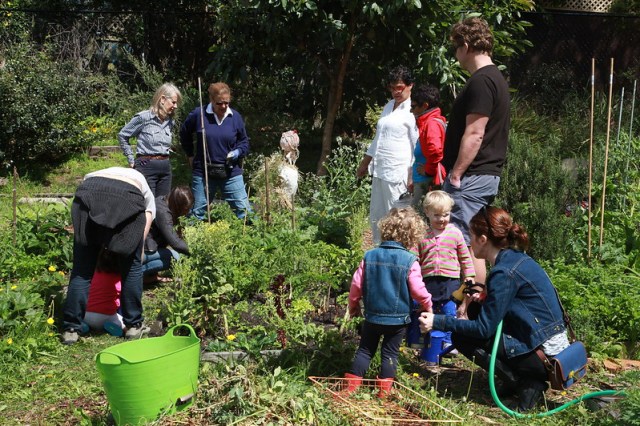The food industry moves at lightning speed. Big companies use sophisticated laboratories to adjust ingredients, which enhances taste and appearance.
Grocery shelves are filled with glossy, “healthy-looking” foods — gluten-free, vegan, and packed with whole grains. We think we are making good choices.
As consumers, we often struggle to make choices that truly benefit our health, bombarded by advertisements featuring happy, healthy-looking families enjoying these products. The appeal of convenience, glossy packaging, and healthy claims can make us think, “Why not give it a try?”
Then we look at the ingredients list, and see the terms “bioengineered”, “GMO”, and dozens of ingredients we cannot pronounce. Even familiar terms like “natural flavors” and “phosphates” mask the truth behind what’s in our food. We might even find ourselves wondering why lemonade needs added “natural flavors” or colors — and why lemons aren’t the first ingredient!
Fortunately, there are many ways to take control of our food choices that taste good, contribute to our health, build community, and benefit the planet.
Eating with the Earth in Mind
A powerful connection exists between health and environmental sustainability:
- Healthier populations tend to have smaller environmental footprints, requiring fewer resources and healthcare interventions.
- Diets richer in plant-based foods are generally more eco-friendly, as they demand fewer natural resources than animal-based diets.
Without promoting a specific diet, there are eco-friendly principles we can all incorporate into our eating habits. Choosing local, seasonal foods and reducing food waste are both great ways to support the planet. Additionally, paying attention to packaging helps minimize our environmental impact.
In recent years, movements like Meatless Mondays and “Vegan Before 6” have gained popularity, encouraging us to reduce our meat consumption and consider the journey of our food — from growth to our plates.
Practical Steps to Control Your Food Supply and Support a Healthier Planet
While climate change and environmental pollution can feel overwhelming, our individual choices collectively make a significant impact.
Here are a few ways to promote a cleaner food supply for you, your family, and your community:

Plant a Garden
Whether you live in an apartment, a suburban house, or on a farm, there’s a way to grow food. Small herb gardens on windowsills, countertop hydroponic systems, greenhouses, and community gardens all allow us to cultivate fresh produce.
Even a few pots on a terrace can bring life to a meal while reducing transportation costs and connecting us to the food we eat.
Start with simple herbs or microgreens or expand to a community garden plot. Not only does gardening offer the freshest quality produce, but it can also bring neighbors together and foster food-sharing initiatives.
Shop Farmer’s Markets and Support CSAs.

If you really don’t want to get your hands dirty, local farmer’s markets and Community Supported Agriculture (CSA) programs are excellent options.
At the market, you can meet the farmers, learn about their practices, and buy fresh produce picked that morning. CSAs allow you to subscribe to seasonal produce directly from a farm, supporting local agriculture and minimizing your carbon footprint.
Shopping locally also introduces you to seasonal foods, which are often more nutrient-dense than out-of-season produce.
Make Sustainable Food Choices Year-Round
When gardening season is over or farmer’s markets close, there are still ways to make eco-conscious choices. Many areas offer subscription services for produce that’s “imperfect” or would otherwise go to waste. These services are often a source of affordable, organic options and lesser-known brands.
At grocery stores, prioritize organic foods when possible and be mindful of ingredient sourcing. Look for sustainably sourced oils, chocolates, and other ingredients.
You can also support biodiversity by choosing less popular foods. According to the World Wildlife Fund, 75% of the world’s food supply comes from just 12 plants and five animal species.
By trying new foods, you support a healthier and more resilient ecosystem.
Community Initiatives to Promote Sustainable Eating

Community gardens are just one way to build a healthier, more sustainable food system. Here are other ways to bring the movement to your community:
- Be an Advocate: Talk to your neighbors, friends, or even local grocery stores about increasing the availability of organic foods. Start community education programs on topics like seasonal eating, reducing food waste, or plant-based cooking.
- Create a Food Recovery Network: Work with local restaurants, grocery stores, and farms to collect excess edible food for donation to shelters and food banks.
- Start a Composting Initiative: Set up a neighborhood composting site or work with local waste management for curbside composting options.
- Establish a Seed Library: Partner with your local library to create a community seed library, where people can exchange open-pollinated seeds, encouraging biodiversity and local food production.
- Trade Excess Produce: Share the abundance! If you have an apple tree and a neighbor has extra zucchini, set up a produce swap to reduce waste and foster community bonds.
Take Back Control of Your Health and the Planet’s Future
While government policies and corporate practices impact food choices, we have the power to act now. By adopting sustainable habits, we not only improve our health but also inspire others to join us in creating a healthier planet. Small actions add up: when we choose local foods, cut down on food waste, and support biodiversity, we’re making an impact.
These changes may seem simple, but their benefits create a ripple effect — enhancing our own health, supporting local ecosystems, and building a future where food is both nourishing and sustainable for generations to come.
Images: d-olwen-dee, Philippa Willitts, Bruce Caron, Chris Fithall
